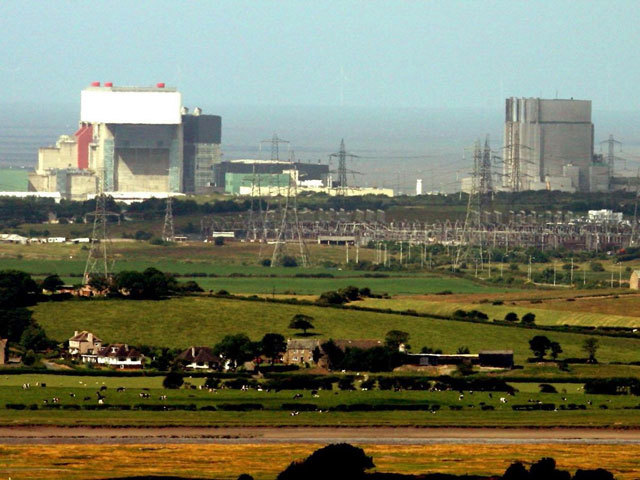
Chinese companies are to be allowed to take a majority stake in new nuclear power stations in Britain, George Osborne has said.
The Chancellor made the potentially controversial announcement as he wound up his visit to the far eastern economic giant.
Firms’ investment in the UK will be underpinned by a memorandum signed in Beijing earlier this week.
The first deal could be struck as early as next week with the go-ahead for a new £14billion plant at the Hinckley C site.
Initially Chinese companies are likely to hold a minority stake in any project, but this could rise over time to a majority.
“Today is another demonstration of the next big step in the relationship between Britain and China – the world’s oldest civil nuclear power and the world’s fastest growing civil nuclear power,” Osborne said speaking at Taishan nuclear power station in southern China.
“It is an important potential part of the Government’s plan for developing the next generation of nuclear power in Britain. It means the potential of more investment and jobs in Britain, and lower long-term energy costs for consumers.”
The Treasury said the memorandum would ensure that British companies such as Rolls-Royce can benefit from China’s multibillion-pound civil nuclear programme.
The UK-based International Nuclear Service will also be sharing expertise in radioactive waste management, including starting to train Chinese technicians later this month.
EDF has been negotiating with three Chinese nuclear giants on the Hinkley C project – CGN, CNNC and SNPTC – all of which have been seen by the Chancellor this week.
Hinkley C in Somerset is due to be the UK’s first new nuclear power station since 1995.
French energy giant EDF is the main company behind the project, but has been looking for partners to share the costs.
“This is an exciting development, strengthening our relationship with China in a way that will benefit both countries,” said Ed Davey, the energy secretary.
“Investment from Chinese companies in the UK electricity market is welcome, providing they can meet our stringent regulatory and safety requirements.”
Recommended for you
